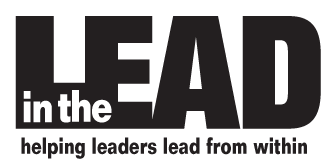Becoming a Better Leader - Work at it!
Great leaders aren’t generally born. They evolve over time through trial and error, successes and failures. Many leaders do figure it out overtime, but can the learning curve be accelerated? Like any other skill – you have to work on it.
Leaders essentially transform their portion of the organization into results-driven entities. Regardless of the leader’s level, frontline supervisor to C-suite executive, all leaders integrate four dimensions to enable their success.
· Plan. All leaders plan the work of others and define the path for achieving success. This is the fundamental difference between leaders and individual contributors. They are responsible for not only their own success but the success of their team, regardless of whether the team is two individuals or a plant of two thousand employees.
· Execute. Leaders are then responsible for delivering on the plan. Carefully made plans, created with the team, are easier to deliver when the entire team knows what is expected, in what timeline and within what quality specifications. Many leaders fall into the trap of only executing on the plan because its familiar territory, but the leader will stall if they don’t focus on the other dimensions as well.
· Communicate. Leaders share information with their teams proactively. They must have a keen sense of which communication vehicles are most effective and be aware of what information can be shared now or must wait for a later time. Leaders use communication to connect their teams to the broader goals of the organization.
· Develop. Leaders take time to enhance the capabilities of their team. They provide feedback, encouragement, and resources for broadening the skill mix needed now and in the future. They encourage professional development and create opportunities for learning, both individually and collectively.
If this is what leaders “do”, then how do they learn to do it well? While great leaders learn over time, its more than trial and error. Great leaders study great leaders, they ask for feedback, and reflect on their learning on the job. In short, they invest in their capabilities to become effective. Training programs are plentiful, but development that occurs within the flow of work is most effective. Developing your leadership knowhow? Consider the following strategies.
Study leadership. Great leadership books abound; they do not have to all be read. Select three or four, read them thoroughly, and then summarize what you discovered. What do great leaders do? What do they NOT do? What lessons can be learned from their mistakes?
Collect stories. Interview leaders you admire. From whom did they learn? What mistakes did they make that they learned from? How did they develop their skills? Include leaders from different economic backgrounds, education, and industries. Share what you learned with others.
Ask for feedback. A key difference between good leaders and great leaders is that they are incredibly self-aware. They know their strengths and shortcomings and manage within them. They gain these insights by regularly and pragmatically asking for feedback. They seek informal and formal feedback, from superiors and subordinates.
Utilize a coach. Coaching is a $2 billion global industry. Why? Because it works. Coaches provide a sounding board for insights and perspectives. They don’t teach or give advice, they create space for reflection, so leader find solutions, next steps and strategies from within.
